Gardening in Brisbane City: A Comprehensive Guide
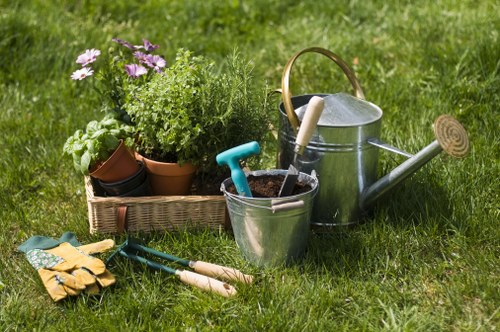
Gardening in Brisbane City offers a unique blend of challenges and opportunities for both novice and experienced gardeners. The subtropical climate, characterized by warm summers and mild winters, creates an ideal environment for a diverse range of plants. Whether you have a spacious backyard or a compact balcony, Brisbane's urban landscape is conducive to cultivating beautiful and thriving gardens.
One of the key advantages of gardening in Brisbane is the extended growing season. The city's climate allows for multiple planting cycles throughout the year, enabling gardeners to experiment with a variety of plants and vegetables. From vibrant flowering annuals to hearty perennials, the possibilities are endless.
However, gardening in an urban setting comes with its own set of challenges. Limited space, soil quality, and urban pests are common issues that gardeners must navigate. Fortunately, with the right strategies and resources, these obstacles can be effectively managed to create a flourishing garden.
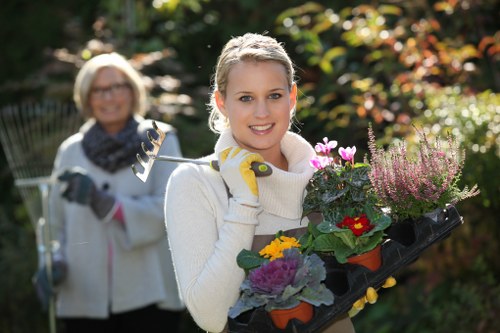
Choosing the Right Plants for Brisbane's Climate
Selecting plants that are well-suited to Brisbane's climate is crucial for a successful garden. Native plants, in particular, thrive in the local conditions, requiring less water and maintenance. Some popular native plants include the Sturt's Desert Pea, Grevillea, and Jacaranda, all of which add vibrant colors and unique textures to your garden.
In addition to native species, many tropical and subtropical plants also flourish in Brisbane. Plants such as Bird of Paradise, Hibiscus, and Citrus trees are excellent choices that can withstand the city's warm temperatures and occasional frosts.
For those interested in edible gardening, Brisbane's climate supports a wide variety of vegetables and herbs. Tomatoes, lettuce, basil, and mint are staples that grow well in container gardens or raised beds, making them perfect for urban gardening spaces.
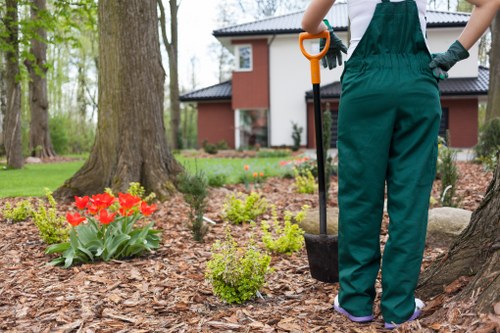
Soil Preparation and Maintenance
Healthy soil is the foundation of any successful garden. In Brisbane, it's essential to assess the soil quality of your gardening area and amend it as necessary. Urban soils can often be compacted or deficient in essential nutrients, so incorporating organic matter such as compost or well-rotted manure can significantly improve soil structure and fertility.
Regular maintenance practices, including mulching, watering, and fertilizing, are vital to sustaining plant health. Mulching helps retain moisture, suppress weeds, and regulate soil temperature. Drip irrigation systems or soaker hoses are efficient watering methods that conserve water while ensuring plants receive adequate hydration.
Seasonal fertilization tailored to the specific needs of your plants will promote robust growth and abundant blooms. It's important to choose fertilizers that match the nutrient requirements of your garden, whether organic or synthetic.
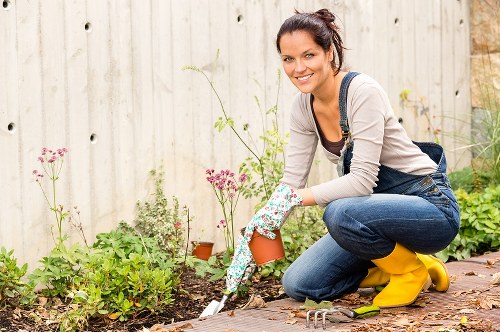
Maximizing Limited Space
Urban gardeners often face the challenge of limited space, but with creative solutions, it's possible to cultivate a thriving garden even in small areas. Vertical gardening, for instance, utilizes walls, railings, and trellises to grow climbing plants or hang containers, maximizing vertical space.
Container gardening is another effective method, allowing flexibility and mobility. Using pots, tubs, and raised beds enables you to grow a variety of plants without the constraints of ground space. Self-watering containers can further simplify maintenance by providing consistent moisture levels.
Additionally, selecting compact or dwarf plant varieties can help optimize space usage. Herbs like thyme and oregano, as well as compact vegetables like bush beans and cherry tomatoes, are well-suited for small gardens.
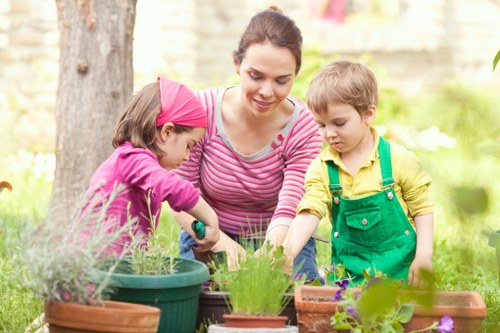
Pest and Disease Management
Gardening in Brisbane City exposes plants to various pests and diseases, necessitating proactive management strategies. Integrated Pest Management (IPM) is an effective approach that combines biological, cultural, and mechanical methods to control pest populations while minimizing environmental impact.
Encouraging beneficial insects, such as ladybugs and lacewings, can naturally reduce pest numbers. Regular monitoring of plants for signs of infestation or disease enables early intervention, preventing widespread damage.
Using organic pesticides and environmentally friendly treatments is recommended to maintain a healthy garden ecosystem. Additionally, maintaining plant hygiene by removing dead or diseased foliage can reduce the risk of pest and disease outbreaks.
Gardening Tools and Supplies
Having the right tools is essential for efficient gardening. Basic tools such as a hand trowel, pruning shears, watering can, and gloves should be readily available. Investing in quality tools ensures durability and ease of use, making gardening tasks more manageable.
Additionally, consider using ergonomic tools designed to reduce strain and improve comfort, especially if you spend extended periods gardening. Storage solutions, like tool sheds or wall-mounted racks, help keep your gardening area organized and accessible.
For more specialized tasks, tools such as a soil tester, raised bed kits, and compost bins can enhance your gardening experience by providing additional functionality and sustainability.
Local Gardening Resources and Support
Brisbane offers a wealth of resources and support for gardeners, from community gardens to local nurseries and gardening clubs. Engaging with local gardening communities provides valuable knowledge, shared experiences, and access to unique plant varieties.
Local nurseries are excellent sources for region-specific plants and expert advice. Many nurseries in Brisbane City offer workshops, plant sales, and personalized consultations to help you achieve your gardening goals.
Community gardens offer opportunities to collaborate with fellow gardeners, share resources, and cultivate larger plots that may be impractical in private spaces. Participating in these communal efforts fosters a sense of community and collective growth.
Gardening Trends in Brisbane
Current gardening trends in Brisbane reflect a growing emphasis on sustainability, biodiversity, and urban agriculture. More gardeners are adopting eco-friendly practices, such as composting, rainwater harvesting, and using organic fertilizers, to minimize their environmental footprint.
Biodiversity is also a key focus, with gardeners incorporating a wide range of plant species to attract pollinators, birds, and beneficial insects. Creating diverse ecosystems within gardens enhances resilience and promotes natural pest control.
Urban agriculture is gaining popularity, with rooftop gardens, vertical farms, and community plots contributing to local food production. These initiatives not only provide fresh produce but also educate the community about the importance of sustainable living and food security.
Seasonal Gardening Tips
Adapting your gardening practices to the seasons is essential for maintaining a healthy and productive garden. Each season brings its own set of tasks and considerations, ensuring that your garden thrives year-round.
Spring: Spring is an ideal time for planting new seeds, preparing soil, and mulching. It's also a great time to prune flowering shrubs and trees to promote healthy growth.
Summer: During the hot summer months, focus on regular watering, providing shade for sensitive plants, and controlling pests. Harvesting vegetables and fruits as they ripen ensures the best flavor and quality.
Managing Water in Your Garden
Water management is a critical aspect of gardening in Brisbane, given the city's variable rainfall and temperatures. Implementing efficient watering systems, such as drip irrigation or soaker hoses, can help conserve water while ensuring that plants receive adequate hydration.
Rainwater harvesting systems, including barrels or tanks, can capture and store rainwater for use during dry periods. This sustainable practice reduces reliance on municipal water sources and lowers gardening costs.
Mulching plays a vital role in water conservation by reducing evaporation, suppressing weeds, and maintaining consistent soil moisture levels. Organic mulches, like straw or wood chips, also improve soil health as they decompose.
Urban Wildlife and Gardening
Gardens in Brisbane City can become havens for urban wildlife, including birds, bees, butterflies, and beneficial insects. Creating a wildlife-friendly garden enhances biodiversity and contributes to a balanced ecosystem.
Planting nectar-rich flowers and providing water sources, such as birdbaths or small ponds, attract pollinators and other beneficial creatures. Incorporating native plants further supports local wildlife by offering food and habitat tailored to their needs.
Installing birdhouses, bat boxes, and insect hotels encourages the presence of these creatures, aiding in natural pest control and pollination. Maintaining a pesticide-free garden ensures that wildlife can thrive without harmful chemical exposure.
Gardening Events and Workshops in Brisbane
Brisbane regularly hosts gardening events and workshops that provide opportunities for learning, networking, and inspiration. These events cover a range of topics, from organic gardening techniques to landscape design and sustainable practices.
Attending gardening shows and flower exhibitions allows you to explore new plant varieties, discover innovative gardening products, and connect with industry experts. Workshops offer hands-on experience, enabling you to develop new skills and enhance your gardening knowledge.
Community-led events, such as plant swaps and garden tours, foster a sense of camaraderie among local gardeners. Participating in these activities enriches your gardening experience and keeps you updated with the latest trends and best practices.
10-15 Closest Areas to Brisbane City for Gardening Services
- South Brisbane: Just across the river, South Brisbane offers numerous community gardens and access to top local nurseries.
- Fortitude Valley: Known for its vibrant community, this area has several rooftop gardens and urban farming initiatives.
- West End: A hub for sustainable gardening practices, West End boasts eco-friendly gardens and workshops.
- New Farm: Featuring spacious backyards and riverfront properties, New Farm is ideal for both hobby and professional gardeners.
- Bulkley: A leafy suburb with a strong gardening community and access to organic markets.
- Highgate Hill: Offers a mix of traditional and contemporary gardens, perfect for diverse gardening styles.
- Boondall: Home to several botanical gardens and research centers focused on plant science.
- Paddington: Characterized by terraced gardens and historic homes with lush green spaces.
- Indooroopilly: Features large properties and community-supported agriculture programs.
- Wilston: Known for its family-friendly gardens and active gardening clubs.
- Red Hill: Offers unique microclimates suitable for a variety of plant species.
- Kangaroo Point: Combines urban living with accessible green spaces and garden terraces.
- The Gap: Provides extensive outdoor areas and is close to regional parks and reserves.
- Petrie Terrace: Boasts an array of community gardens and local gardening events.
- Mossman: Although slightly further, it offers specialized gardening services and plant nurseries.
Conclusion
Gardening in Brisbane City is a rewarding endeavor that combines the beauty of nature with the convenience of urban living. By understanding the local climate, selecting appropriate plants, and utilizing efficient gardening practices, you can create a vibrant and sustainable garden space.
Whether you're cultivating a small balcony garden or managing a larger backyard oasis, the resources and community support available in Brisbane make it easier than ever to achieve your gardening goals. Embrace the green lifestyle, enhance your living environment, and enjoy the myriad benefits that come with a well-tended garden.
Contact us today to start your gardening journey in Brisbane City and transform your space into a lush, thriving paradise.
